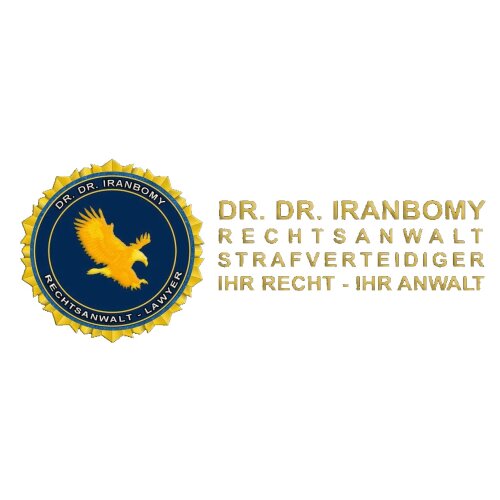Best Structured Finance Lawyers in Frankfurt am Main
Share your needs with us, get contacted by law firms.
Free. Takes 2 min.
List of the best lawyers in Frankfurt am Main, Germany
About Structured Finance Law in Frankfurt am Main, Germany
Structured Finance is a highly specialized area of law and finance that focuses on the design, implementation, and legal structuring of complex financial products, such as asset-backed securities (ABS), collateralized debt obligations (CDOs), and securitizations. Frankfurt am Main, known as Germany’s financial capital, is home to the European Central Bank, the Deutsche Bundesbank, and a host of global financial institutions. As a result, the city is a central hub for structured finance transactions within Germany and across Europe. Legal professionals in this field frequently deal with cross-border deals, compliance requirements, and the ever-evolving regulatory landscape.
Why You May Need a Lawyer
Structured finance transactions can be intricate and often involve significant financial and legal risk. Individuals and businesses may require legal advice in the following scenarios:
- You are planning a securitization or asset-backed financing transaction.
- Your company needs to restructure its debt through complex financial instruments.
- You are navigating regulatory requirements for cross-border or international finance deals.
- You face disputes related to structured finance products or investments.
- You need due diligence on underlying assets or risk profiles involved in a structured deal.
- Your business is engaging in derivatives or other customized financial structures.
- You require advice on taxation or accounting implications of structured finance arrangements.
- You are acquiring or selling portfolios of receivables, loans, or other financial assets.
In each of these cases, a specialized lawyer can help ensure compliance, manage risk, and protect your interests throughout the transaction process.
Local Laws Overview
Structured finance transactions in Frankfurt am Main are influenced by local German law, European Union regulations, and global financial standards. Key legal aspects to consider include:
- German Civil Code (BGB): Governs contract law, property rights, and obligations central to structured transactions.
- Banking Act (KWG): Sets rules for financial institutions involved in structured finance, including licensing, risk management, and reporting obligations.
- Capital Investment Code (KAGB): Regulates investment funds and their involvement in structured products.
- EU Securitization Regulation: Applies to any securitization within the EU, including requirements around transparency, due diligence, and risk retention.
- Tax Laws: German tax law impacts the structuring of deals, SPV locations, and cash flows.
- Consumer Protection: Laws affect retail investors and public offerings of structured finance products.
- Supervisory Bodies: Regulatory oversight by BaFin (Federal Financial Supervisory Authority) and the European Central Bank plays a significant role in transactions.
Navigating these regulations can be challenging, making local legal expertise essential for anyone involved in structured finance deals in Frankfurt am Main.
Frequently Asked Questions
What is structured finance?
Structured finance refers to the use of complex financial instruments and legal arrangements to manage risk, free up capital, or access new sources of funding, commonly via securitizations, collateralized debt, or asset-backed securities.
Who typically uses structured finance in Frankfurt, Germany?
Banks, corporations, institutional investors, leasing companies, and private equity firms often utilize structured finance for risk management, capital optimization, and funding diversification.
Are there specific regulatory authorities I need to know about?
Yes, BaFin is the primary national regulator for financial markets, while the European Central Bank and European Securities and Markets Authority (ESMA) have roles in overseeing cross-border and EU-wide transactions.
Do I need a special license to engage in structured finance?
Institutions participating in structured finance as organizers, arrangers, or issuers usually require appropriate banking or financial services licenses under German and EU regulations.
What legal risks are involved in structured finance?
Legal risks include non-compliance with regulatory requirements, improper transfer of assets, enforceability of the transaction structure, and potential liability to investors or counterparties.
How are cross-border deals handled?
Cross-border structured finance transactions involve additional complexities due to differing jurisdictions, regulatory regimes, and tax laws. Legal coordination between countries is necessary.
What role does a lawyer play in a securitization?
Lawyers draft and negotiate all transaction documents, ensure compliance with regulations, conduct due diligence, structure the deal to achieve client objectives, and manage risk throughout the process.
Are there particular tax implications for structured finance in Germany?
Yes, tax treatment of special purpose vehicles, cash flows, and asset transfers can significantly influence deal structure and profitability. Expert tax advice is vital.
Can individuals invest in structured finance products?
While the market is dominated by institutional participants, there are retail offerings, but these are subject to stringent consumer protection and disclosure requirements.
What should I look for in a structured finance lawyer in Frankfurt am Main?
Seek lawyers with expertise in German and EU financial regulations, experience with similar transactions, familiarity with international law for cross-border deals, and a strong track record in negotiating complex financial arrangements.
Additional Resources
The following resources and organizations can be helpful for anyone seeking information or assistance regarding structured finance in Frankfurt am Main, Germany:
- BaFin (Federal Financial Supervisory Authority) for regulatory guidelines and updates
- European Central Bank (ECB) for policies and regulations impacting the Eurozone
- German Banking Association (Bundesverband deutscher Banken) for industry standards and best practices
- Bundesbank (German Central Bank) for financial market statistics and regulatory information
- Professional organizations such as the German Bar Association (DAV) for lawyer directories and legal support
- Local universities and business schools often host seminars and provide insightful publications on structured finance trends and laws
Next Steps
If you believe structured finance law may impact your personal or business interests in Frankfurt am Main, consider taking the following steps:
- Clearly outline your objectives and gather all relevant financial and transaction documents
- Identify legal issues or challenges that may arise in your case
- Research and contact a law firm or attorney specializing in structured finance in Frankfurt am Main
- Consult with legal experts to discuss your situation, assess risks, and explore potential strategies
- Ask about the lawyer’s experience, approach, and previous cases similar to yours
- Stay updated on regulatory developments that may affect your planned transactions
Obtaining experienced legal counsel in structured finance is crucial for successfully navigating regulatory complexities, minimizing risk, and ensuring that your investments or transactions comply with all local and international requirements.
Lawzana helps you find the best lawyers and law firms in Frankfurt am Main through a curated and pre-screened list of qualified legal professionals. Our platform offers rankings and detailed profiles of attorneys and law firms, allowing you to compare based on practice areas, including Structured Finance, experience, and client feedback.
Each profile includes a description of the firm's areas of practice, client reviews, team members and partners, year of establishment, spoken languages, office locations, contact information, social media presence, and any published articles or resources. Most firms on our platform speak English and are experienced in both local and international legal matters.
Get a quote from top-rated law firms in Frankfurt am Main, Germany — quickly, securely, and without unnecessary hassle.
Disclaimer:
The information provided on this page is for general informational purposes only and does not constitute legal advice. While we strive to ensure the accuracy and relevance of the content, legal information may change over time, and interpretations of the law can vary. You should always consult with a qualified legal professional for advice specific to your situation.
We disclaim all liability for actions taken or not taken based on the content of this page. If you believe any information is incorrect or outdated, please contact us, and we will review and update it where appropriate.














